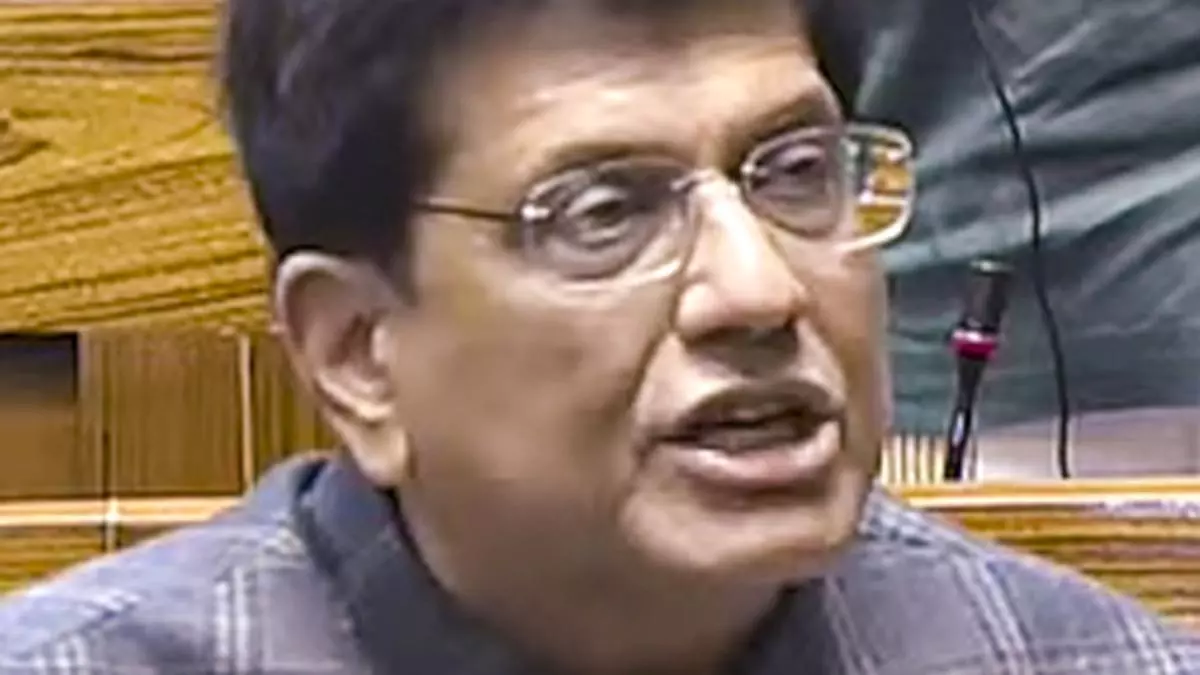i-CAS for Halal mandatory for specified meat exports to certain countries, says Piyush Goyal
The Centre has said the India Conformity Assessment Scheme (i-CAS) for Halal is mandatory with respect to the export of specified meat products destined to specified countries.
Replying to a question on Halal certification in the Lok Sabha on Tuesday, Piyush Goyal, Union Commerce Minister, said the major meat and meat products importing countries such as Malaysia, Indonesia, Egypt, Iran, Gulf Cooperation Council (GCC) countries, etc., have their own regulations, standards and system for certification of imports of Halal products. Exports of meat products from India and other countries are required to be compliant with the country’s specific requirements for Halal.
As per the i-CAS for Halal formulated for export of specified meat products, Halal certificate is a Certificate of Conformity that confirms that the product, process or service meets the Halal standards/regulations and the Halal requirements as per Islamic Shariah Law, he said in the reply.
The i-CAS for Halal has been developed in line with global requirements and best practices to facilitate meat exports to countries requiring Halal certification and also streamlining the certification process. “With respect to the export of specified meat products destined to specified countries, the i-CAS for Halal is mandatory, apart from the compliance with the respective importing countries’ requirements,” he added.
Dip in organic carbon
Meanwhile, the Centre has said that injudicious or excessive use of chemical fertilizer and stubble burning are some of the reasons for decrease in organic carbon in soil.
In a written reply in the Lok Sabha on Tuesday, Ramnath Thakur, Union Minister of State for Agriculture and Farmers’ Welfare, said the major reasons for the decrease in organic carbon in soil are: defective practices such as injudicious or excessive use of chemical fertilizer, frequent tillage/ploughing, stubble burning, overgrazing and erosion. Replacing perennial vegetation with monoculture crops and pastures; and soil physicochemical properties such as soil bulk density, high gravel content, soil erosion and low soil water content/poor moisture conservation measures are also the reasons for the decrease in organic carbon in soil.
He said the presence of organic carbon in agricultural land is regularly checked through Soil Health Card (SHC). Till date, 24.60 crore SHCs have been generated.
Stating that SHC gives the details of organic carbon content in the soil, he said advisories are given to the farmers on integrated nutrient management for judicious use of chemical fertilizers, including secondary and micro nutrients along with organic manures and bio-fertilizers, for improving soil organic carbon and health.
Saffron output down
To a separate question on saffron production in Kashmir, Thakur said the production of saffron in Jammu and Kashmir decreased from 8 tonnes in 2010-11 to 2.7 tonnes in 2023-24 (third Advance Estimates). However, the saffron production increased by 8 per cent during the period between 2022-23 and 2023-24.
Agristack progress
To a separate question on the implementation of Agristack under the Digital Public Infrastructure (DPI) for Agriculture initiative, Thakur said Agristack consists of three foundational registries or databases in the agriculture sector — the Farmers’ Registry, geo-referenced village maps and the Crop Sown Registry — all created and maintained by the State governments/Union Territories.
As of December 11, a total of 37,17,709 farmer IDs have been created and Digital Crop Survey (DCS) has been undertaken in 436 districts in kharif 2024. At present, Memorandum of Understanding as been signed with 22 States/UTs for creation and implementation of the DPI for Agriculture, he said.
Rubber prices higher
To a question on rubber production, the Union Minister of State for Commerce, Jitin Prasada, said the production of natural rubber has increased from 7.15 lakh tonnes (lt) in 2020-21 to 8.57 lt in 2023-24. The productivity of natural rubber has also increased during this period from 1,442 kg per hectare in 2020-21 to 1,485 kg per hectare in 2023-24.
He said the average price of natural rubber (RSS 4 grade) for the period January-October 2024 has been significantly higher than the average price of RSS 4 grade for the same period in 2023. There is no information about any specific instances of losses incurred by rubber farmers, he added.
